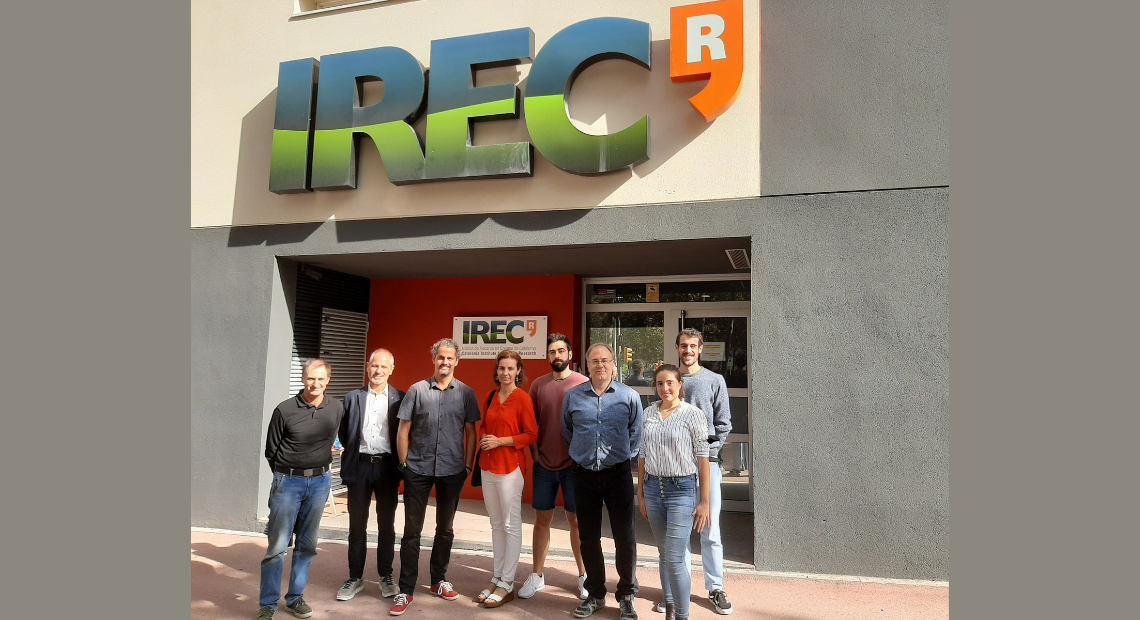The general secretary of Sport and Physical Activity, Anna Caula and the director of the Catalan Sports Council, Aleix Villatoro, from Generalitat de Catalunya, today have visited the IREC headquarters facilities to reaffirm the alliance to work together for the environmental and energy improvement of sports facilities in Catalonia.
During the visit, Anna Caula and Aleix Villatoro, were received by Prof. Joan Ramon Morante, IREC’s director, and Jaume Salom, head of the Thermal Energy and Building Performance research group, who explained the research projects carried out by IREC. The members of the research group have given them some demonstrations of the monitoring equipment and smart laboratories, dedicated to testing and validating intelligent solutions in real environments.
The meeting has allowed that the general secretary of Sport and Physical Activity, through the Catalan Sports Council, as well as IREC have expressed their desire to expand the joint work, started in 2015, with a new collaborative framework of the contract-program signed between the Government of Catalonia, the Institut Català d’Energia and the IREC, for the period 2020-2022.
The aim of this renewed alliance is to carry out research into the energy aspects of sports equipment in Catalonia, so that the sports facilities contribute to the objectives established in the 2030 Catalonia’s Agenda. Under the agreement, Esportcat will entrust strategic tasks to IREC to consolidate the research projects developed between the parties in last period in energy topics.
Specifically, the objective is to establish a collaboration between Esportcat and IREC for the development of a research and technology transfer project for the definition of people’s comfort parameters, and air quality of the sports spaces in closed areas. As well, to encourage the design and energy management of sports facilities to contribute to the Sustainable Development Goals (SDG) 2030.
During the 2015-2019 period, through a framework collaboration agreement, both parties have already carried out research projects in energy topics to achieve sports equipment with almost zero energy consumption (nZEB) and assessment of indoor environmental quality.
The complete press release in Catalan (CAT) can be found in the following link:



